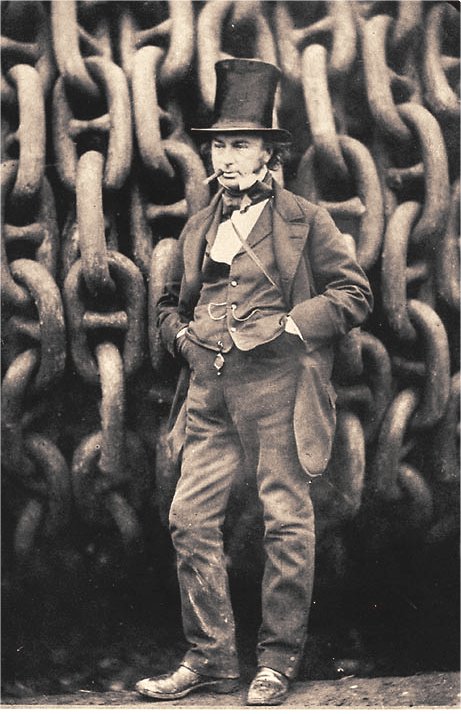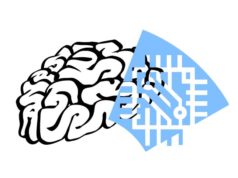Over the past two centuries, the sprout of materialism has blurred our already partial perspectives. We are becoming a species that maintains an increased focus only on the apparent. And in this transition to a largely myopic view, we are losing sight of the reality. It is undoubtedly true that over the past two centuries, mankind has made significant progress in many spheres of knowledge. Yet we seem to be getting out of touch with our own selves. There have been two causalities of this lopsided progress, our empathic capacity and our wisdom.
To further expand on this deviation in knowledge, it would be valuable to look at a piece of classical text. The excerpt from a very famous and thought provoking essay by Frédéric Bastiat published in 1850, namely “The parable of broken window” is copied below:
“Have you ever witnessed the anger of the good shopkeeper, James Goodfellow, when his careless son has happened to break a pane of glass? If you have been present at such a scene, you will most assuredly bear witness to the fact that every one of the spectators, were there even thirty of them, by common consent apparently, offered the unfortunate owner this invariable consolation – “It is an ill wind that blows nobody good. Everybody must live, and what would become of the glaziers if panes of glass were never broken?”
It is unfortunately this ill contrived consolation, which many economists have argued is the very root of the problem that plagues our modern financial institutions.
Those who conclude that for economic activity, breaking of window is beneficial because it circulates money need to pay attention to the author’s response in the same piece.
He says, “Stop there! Your theory is confined to that which is seen; it takes no account of that which is not seen.”
“It is not seen that as our shopkeeper has spent six francs upon one thing, he cannot spend them upon another. It is not seen that if he had not had a window to replace, he would, perhaps, have replaced his old shoes, or added another book to his library. In short, he would have employed his six francs in some way, which this accident has prevented”
This tale is perhaps more relevant today than it was at the time of its publication. It hits the nail on the head of our prevalent attitudes i.e. observing and acting on what is seen and conveniently ignoring the unseen.
The further evolution of our species requires that we pay attention to causes that are immeasurable and unobservable. In fact a growing realization of this void has indeed led to some priceless gains the fields of social /medical sciences, engineering, quality assurance and management.
Take the example Quality management. Edward Demming is considered one of the pioneers in this field. His statement in this regard is notable:
“Management by use only of visible figures, with little or no consideration of figures that are unknown or unknowable is one of the deadly diseases of management”
In his book “Out of fire”, he further quotes Lloyd S. Nelson, “The most important figures that one needs for management are unknown or unknowable but successful management must nevertheless take account of them”.
It was Demming’s theories that in the post war era echoed with a nation that still had a culture steeped in the belief of the spirit. Demming transformed the fortunes of Japan, where quality management became as important as religious ritual.
Moving on from the intangible world of quality management to the very physical front of engineerig, it would be difficult to fathom how belief in unseen can improve this field. Well, it already has. To elaborate, it is worth mentioning the work of one of the most revered engineers of the industrial age, Isambard Brunel. During his time, little was known about creep and fatigue in materials. Today with the advancement in metallurgy and the development of electron microscopes, deeper insight is available. And creep and fatigue in materials can to a degree be quantified.
Brunel during his time compensated for these ageing effects in metals by using more of them in quantity. His critics point out that he over engineered his designs to a significant degree. It was however this over -engineering that made his designs overcome the immeasurable problems due to fatigue and creep. This in turn led to his structures lasting much longer than their designed shelf life and so did his legacy.
Today in engineering, a term “factor of safety” is commonly used during design phase of new products. In the Brunel’s spirit, this term tries to account all unforeseeable that could go wrong.

Has the belief in unseen/ un known improved our health practice?
In medical science, as immeasurable and fictitious the Placebo effect might be, its influence cannot be denied. There is now irrefutable evidence on its effectiveness, which has been ascertained by numerous scientific studies. The placebo effect in different forms has been used by spiritual healers in the east for centuries. And yet, in our quest to deny everything unseen, we have systematically cast out such practices.
Two more examples are worth mentioning here affirm that “just seeing should not be believing”. In particle physics, the discovery of anti-matter has not only broadened our horizons but has fundamentally changed the way we define matter. Similarly, our delving into nanotechnology is allowing us to create completely contrasting materials from the same constituents.
The importance of belief in the unseen is touched in the Quran’s opening passages ( Chapter 2 Verse 2-3)
“ This book, there is no doubt in it, is a guide to those who guard (against evil)”. “Those who believe in the unseen and keep up prayer and spend out of what we have given them”
God has reminded us that having faith in the unknown is the key to understanding the Quran and ultimately the reality of life itself. Our spiritual growth may or may not allow us to explore the unseen but it certainly leads us toward its domain.
We have in the past collectively used this capacity of believing. It was through the power of conscience and spirit that the environmental movement was born much earlier than the publication of sums for CO2 emissions.

Albert Einstein once said. “Not everything that counts can be counted and not everything that can be counted counts.” It is time we pay heed and start accounting the unaccounted.






